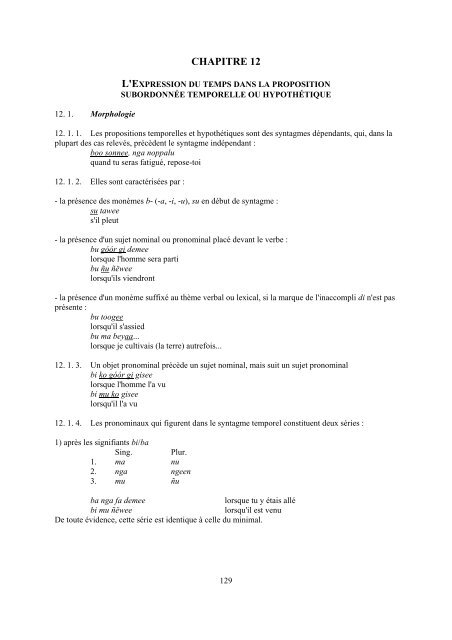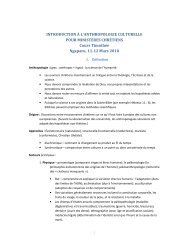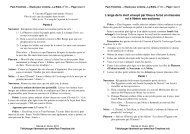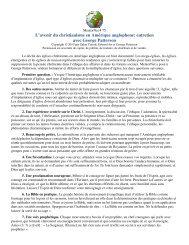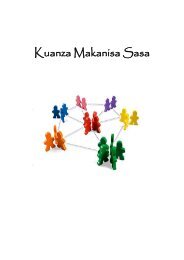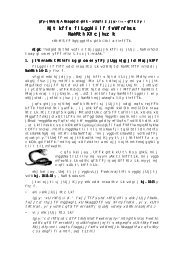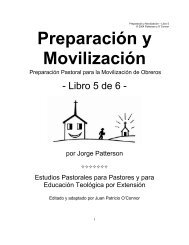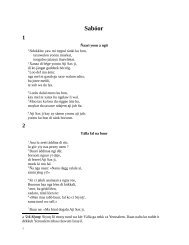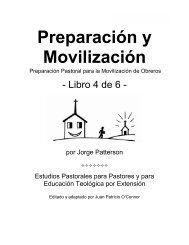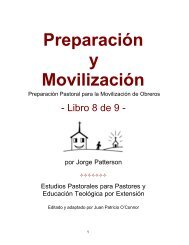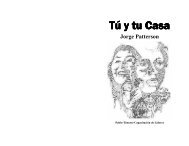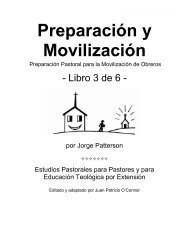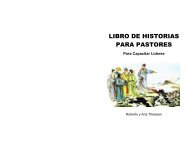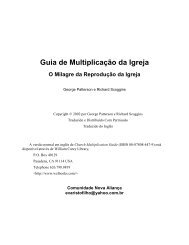LE SYSTEM VERBAL DU WOLOF Par Eric Church - Paul-Timothy
LE SYSTEM VERBAL DU WOLOF Par Eric Church - Paul-Timothy
LE SYSTEM VERBAL DU WOLOF Par Eric Church - Paul-Timothy
You also want an ePaper? Increase the reach of your titles
YUMPU automatically turns print PDFs into web optimized ePapers that Google loves.
12. 1. Morphologie<br />
CHAPITRE 12<br />
L'EXPRESSION <strong>DU</strong> TEMPS DANS LA PROPOSITION<br />
SUBORDONNÉE TEMPOREL<strong>LE</strong> OU HYPOTHÉTIQUE<br />
12. 1. 1. Les propositions temporelles et hypothétiques sont des syntagmes dépendants, qui, dans la<br />
plupart des cas relevés, précèdent le syntagme indépendant :<br />
boo sonnee, nga noppalu<br />
quand tu seras fatigué, repose-toi<br />
12. 1. 2. Elles sont caractérisées par :<br />
- la présence des monèmes b- (-a, -i, -u), su en début de syntagme :<br />
su tawee<br />
s'il pleut<br />
- la présence d'un sujet nominal ou pronominal placé devant le verbe :<br />
bu góór gi demee<br />
lorsque l'homme sera parti<br />
bu ñu ñëwee<br />
lorsqu'ils viendront<br />
- la présence d'un monème suffixé au thème verbal ou lexical, si la marque de l'inaccompli di n'est pas<br />
présente :<br />
bu toogee<br />
lorsqu'il s'assied<br />
bu ma beyaa...<br />
lorsque je cultivais (la terre) autrefois...<br />
12. 1. 3. Un objet pronominal précède un sujet nominal, mais suit un sujet pronominal<br />
bi ko góór gi gisee<br />
lorsque l'homme l'a vu<br />
bi mu ko gisee<br />
lorsqu'il l'a vu<br />
12. 1. 4. Les pronominaux qui figurent dans le syntagme temporel constituent deux séries :<br />
1) après les signifiants bi/ba<br />
Sing. Plur.<br />
1. ma nu<br />
2. nga ngeen<br />
3. mu ñu<br />
ba nga fa demee lorsque tu y étais allé<br />
bi mu ñëwee lorsqu'il est venu<br />
De toute évidence, cette série est identique à celle du minimal.<br />
129


